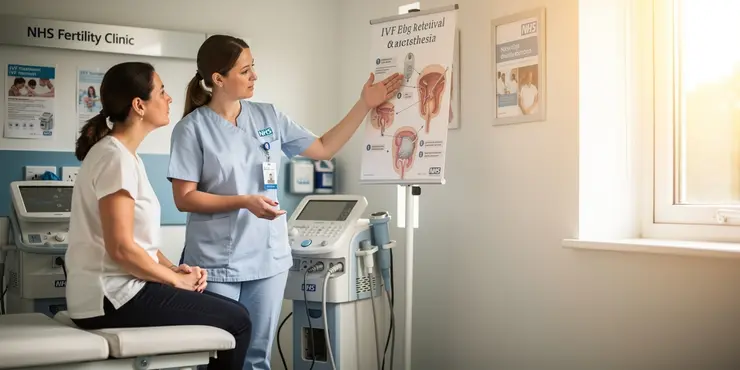
Find Help
More Items From Ergsy search
-
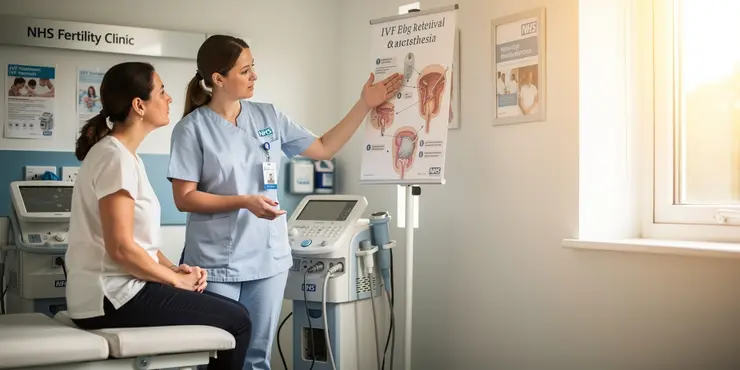
Does IVF require anesthesia?
Relevance: 100%
-
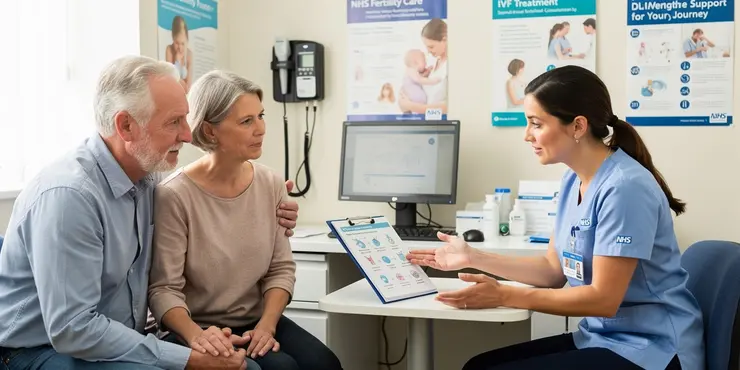
What is IVF and how does it work?
Relevance: 65%
-

Are there risks associated with IVF?
Relevance: 61%
-

Is IVF successful?
Relevance: 58%
-

What is IVF?
Relevance: 57%
-
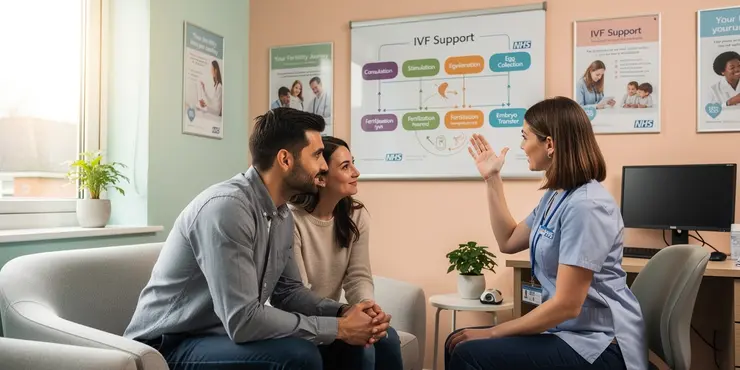
How long does an IVF cycle take?
Relevance: 54%
-

Who might need IVF?
Relevance: 54%
-
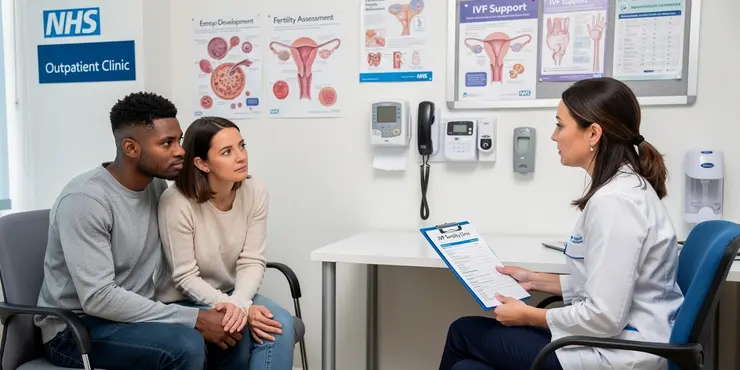
Does IVF guarantee pregnancy?
Relevance: 53%
-
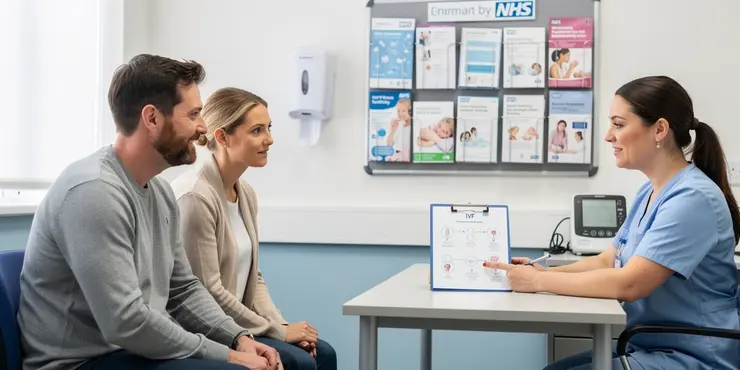
How does IVF work?
Relevance: 52%
-
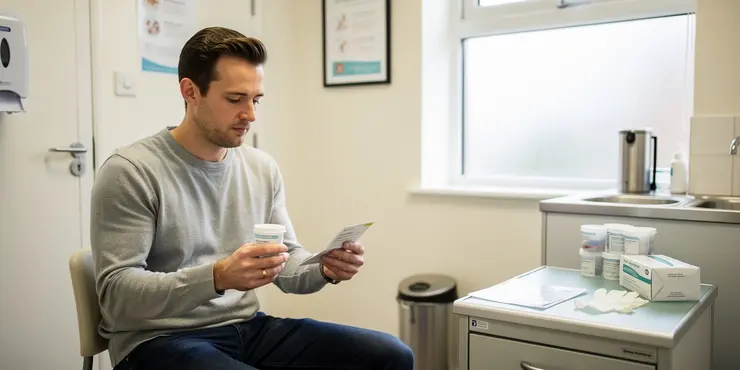
How is the sperm used in IVF?
Relevance: 52%
-

How are embryos transferred during IVF?
Relevance: 52%
-

IVF Fertility Treatment from MumsNet
Relevance: 52%
-

What is spinal anaesthesia?
Relevance: 51%
-

What should I expect during IVF treatment?
Relevance: 51%
-

Infertility - IVF Treatment and Patient Information
Relevance: 50%
-
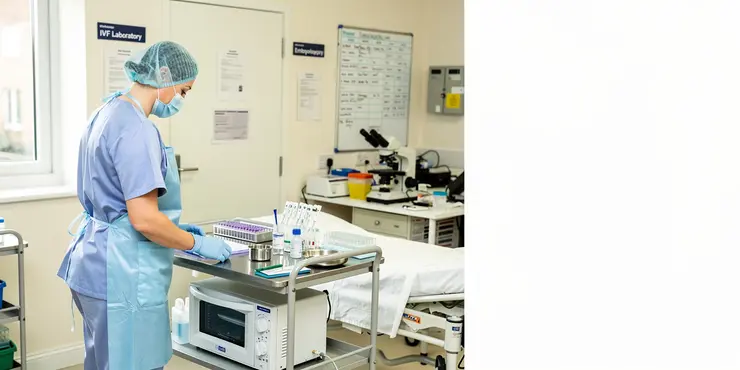
What is the role of the embryologist in IVF?
Relevance: 50%
-
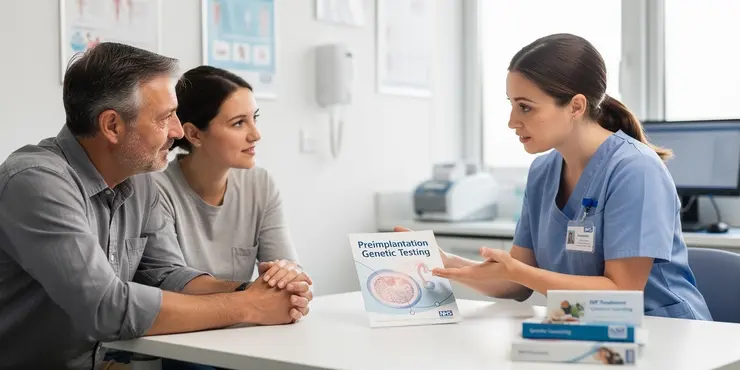
Can IVF be used for gender selection?
Relevance: 50%
-

How do clinics determine if IVF is the right option?
Relevance: 50%
-

What are the main steps in an IVF cycle?
Relevance: 49%
-
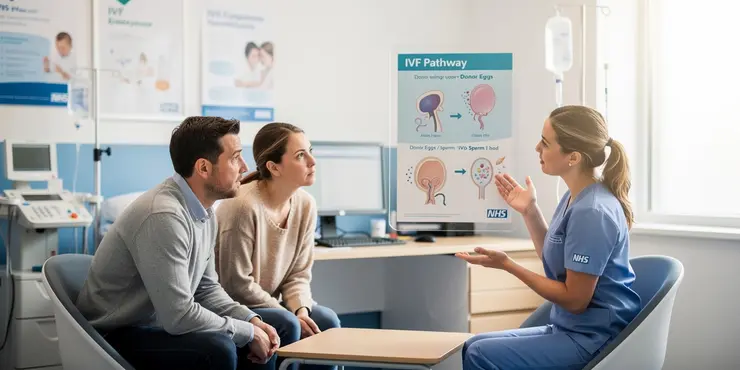
Can IVF be done with donor eggs or sperm?
Relevance: 48%
-
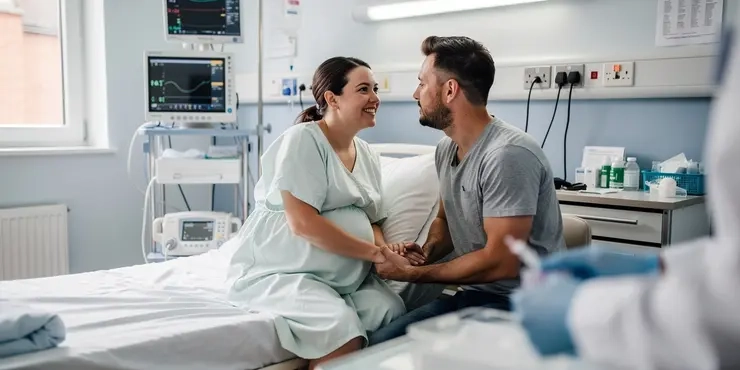
Spinal Anaesthesia for Caesarean Section
Relevance: 48%
-

How many embryos are usually transferred in IVF?
Relevance: 47%
-

How will I be positioned for spinal anaesthesia?
Relevance: 47%
-

Is spinal anaesthesia safe for a Caesarean section?
Relevance: 46%
-
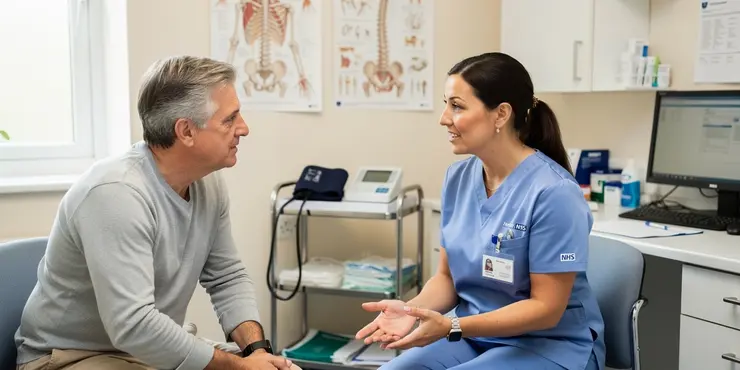
What should I do to prepare for spinal anaesthesia?
Relevance: 45%
-

How is spinal anaesthesia different from an epidural?
Relevance: 45%
-
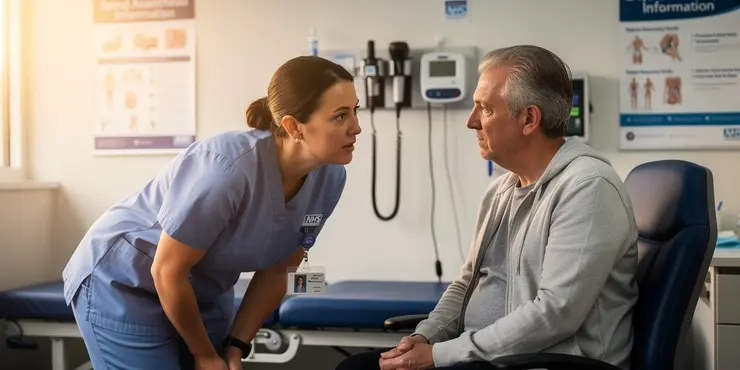
What are the common side effects of spinal anaesthesia?
Relevance: 44%
-

What type of anaesthesia is used during hip replacement surgery?
Relevance: 43%
-
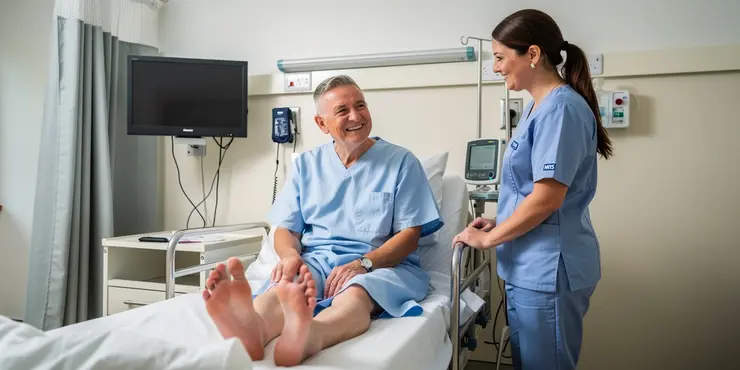
What should I expect after the spinal anaesthesia wears off?
Relevance: 40%
-

Can I breastfeed immediately after a Caesarean section under spinal anaesthesia?
Relevance: 39%
-

Anaesthetic procedure for elective caesarean section (C section)
Relevance: 23%
-
Can spinal anaesthesia affect my baby?
Relevance: 23%
-
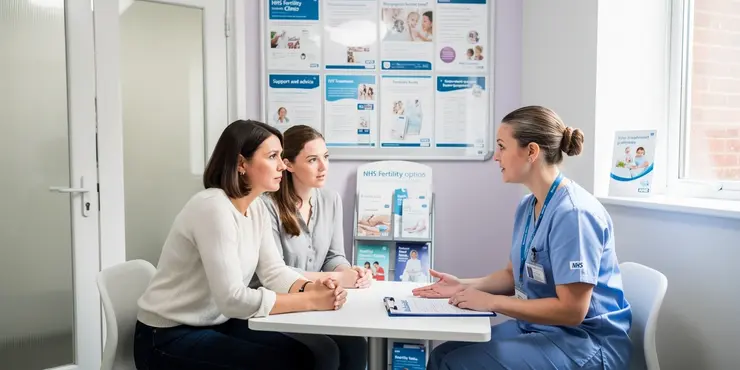
Fertility treatments on the up, but not via the NHS
Relevance: 22%
-

Your anaesthetic choices for your planned hip or knee replacement surgery at the RUH.
Relevance: 22%
-

Will I feel pain during the procedure?
Relevance: 22%
-

What are the alternatives to spinal anaesthesia for a Caesarean section?
Relevance: 21%
-

Will I be awake during a C-section?
Relevance: 21%
-
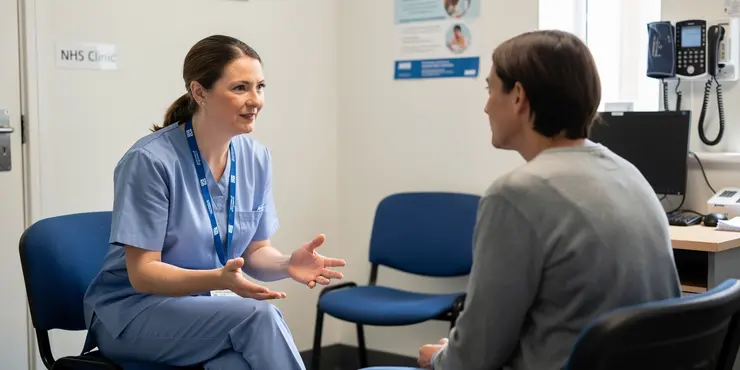
How long does spinal anaesthesia take to go away?
Relevance: 20%
-
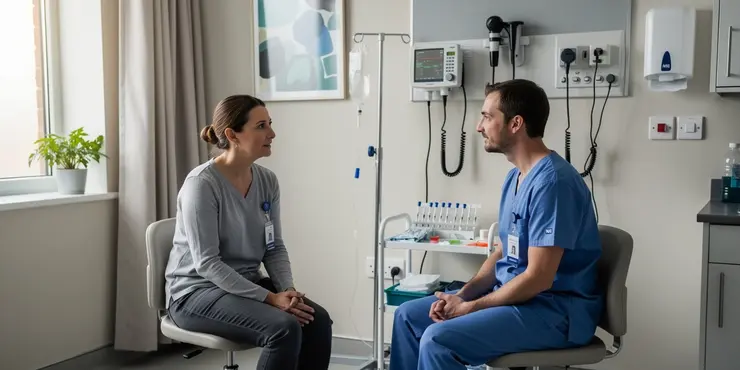
My General Anaesthetic: What's Going To Happen? Sarah's Story at Worcestershire Royal Hospital.
Relevance: 20%
-

Female infertility explained
Relevance: 19%
Understanding IVF and Anesthesia
In vitro fertilisation (IVF) is a widely used assisted reproductive technology (ART) that helps individuals and couples conceive a child. It involves several steps, starting from ovary stimulation to egg retrieval, fertilisation, and embryo transfer. One common question prospective patients have is whether IVF involves anesthesia. In the UK, anesthesia is indeed a part of certain IVF procedures, particularly during the egg retrieval phase.
Egg Retrieval Process
The egg retrieval process, also known as oocyte retrieval, is a crucial step in IVF where eggs are collected from the ovaries. This procedure is typically performed in a clinical setting and involves the use of an ultrasound-guided needle. To ensure the comfort of the patient and minimise any discomfort or pain during the procedure, anesthesia is usually administered. In the UK, this is most commonly done under conscious sedation or mild general anesthesia, depending on the clinic's protocol and the patient’s preference and medical history.
Types of Anesthesia Used
In the UK, conscious sedation is often preferred for egg retrieval. This type of anesthesia keeps patients relaxed and free from pain while remaining partially aware of their surroundings. Medications such as midazolam and fentanyl are commonly used to achieve this state. At times, a short-acting general anesthetic may be administered, especially if the patient prefers to be fully unaware during the procedure. The choice of anesthesia should always be discussed and decided upon in consultation with the fertility specialist and anesthetist, taking into account individual health conditions and any previous reactions to anesthesia.
Impact on Recovery and Success Rates
The use of anesthesia in IVF is generally considered safe, with most patients experiencing only minor side effects such as drowsiness or nausea post-procedure. Recovery times are usually short, allowing patients to return home on the same day. Importantly, the use of anesthesia does not have any direct impact on the success rates of IVF. Its primary role is to enhance patient comfort and facilitate a smoother egg retrieval process.
Considerations and Consultations
Before undergoing IVF, it is important for patients to discuss the anesthesia options with their fertility clinic. Each clinic may have different protocols, and understanding the specifics can help alleviate anxiety and ensure that patients are well-prepared for the procedure. Additionally, patients should disclose any medical history related to anesthesia or allergies to ensure the safest possible experience.
Conclusion
Anesthesia is an integral part of the egg retrieval process in IVF procedures in the UK. It helps provide a comfortable and pain-free experience for patients. By working closely with their fertility team and understanding the options available, patients can approach IVF treatment with greater confidence and assurance.
Understanding IVF and Anesthesia
IVF helps people have a baby. It involves several steps, like making eggs grow, taking out eggs, fertilizing them, and putting the embryo back. People often ask if IVF needs anesthesia. In the UK, anesthesia is used during egg retrieval to make it comfortable.
Egg Retrieval Process
During egg retrieval, doctors take eggs from the ovaries. This is done in a clinic. Doctors use an ultrasound-guided needle to get the eggs. Anesthesia helps keep you pain-free and comfortable. In the UK, clinics often use sedation (you are relaxed but awake) or light general anesthesia (you are fully asleep). The choice depends on the clinic and what you and the doctor decide.
Types of Anesthesia Used
In the UK, sedation is common for egg retrieval. It keeps you comfortable and pain-free while you are still aware. Medicines like midazolam and fentanyl help with this. Sometimes, a short sleep medicine (general anesthesia) is used if you prefer it. It is important to talk to your doctor about which type is best for you.
Impact on Recovery and Success Rates
Anesthesia during IVF is safe. Most people feel only a little sleepy or sick after. You can usually go home the same day. Anesthesia does not affect how well IVF works. It helps you feel better during the egg retrieval.
Considerations and Consultations
Before starting IVF, talk to your doctor about anesthesia choices. Clinics may have different ways of doing things. Knowing your options can make you feel less worried. Tell your doctor about any allergies or past problems with anesthesia for a safe experience.
Conclusion
Anesthesia is important in IVF egg retrieval in the UK. It makes the process comfortable. Speak with your fertility team to understand your options. This will help you feel more confident about IVF treatment.
Frequently Asked Questions
What is IVF?
IVF, or in vitro fertilization, is a process of fertilization where an egg is combined with sperm outside the body, in vitro.
Does the egg retrieval procedure in IVF require anesthesia?
Yes, the egg retrieval process in IVF typically requires sedation or anesthesia to ensure comfort and minimize discomfort during the procedure.
What type of anesthesia is used during IVF egg retrieval?
Most clinics use conscious sedation or general anesthesia, which requires patients to be asleep or deeply relaxed during the procedure.
Is anesthesia necessary for embryo transfer in IVF?
No, anesthesia is usually not necessary for embryo transfer as it is a quick and relatively painless procedure.
How long does the anesthesia last during the egg retrieval process?
The effects of anesthesia can last for a few hours after the procedure, but most patients are fully awake and alert shortly afterwards.
Are there any risks associated with anesthesia in IVF?
As with any procedure involving anesthesia, there are risks such as allergic reactions or complications, but serious issues are rare.
Can I drive myself home after IVF egg retrieval?
No, you should not drive yourself home after undergoing anesthesia. It's important to arrange for someone to take you home.
Is local anesthesia an option for egg retrieval during IVF?
While conscious sedation or general anesthesia is more common, some clinics may offer local anesthesia, but it depends on the patient and the clinic's protocols.
Will I experience pain after the anesthesia wears off from egg retrieval?
Some discomfort or cramping is normal after egg retrieval, but it can be managed with over-the-counter pain medication.
How should I prepare for anesthesia during IVF?
Follow your doctor's instructions, which may include fasting for a period before the procedure, and ensure you have someone to accompany you.
What happens if I'm allergic to anesthesia used in IVF?
Inform your doctor in advance about any allergies to anesthesia; they will choose a safer alternative or take precautionary measures.
How quickly will I recover from anesthesia after IVF egg retrieval?
Most patients recover quickly from anesthesia and are able to resume normal activities within a day or two, though individual recovery times can vary.
Can I eat and drink normally after IVF egg retrieval anesthesia?
You should follow specific post-procedure instructions from your healthcare provider regarding eating and drinking.
Is anesthesia used for multiple IVF cycles?
Yes, anesthesia can be used for each IVF cycle if multiple cycles are needed, especially during egg retrieval procedures.
How long does the egg retrieval procedure take under anesthesia?
The egg retrieval procedure typically takes around 20-30 minutes, but plan for additional time for preparation and recovery.
What should I wear to the clinic for IVF egg retrieval under anesthesia?
Wear comfortable clothing and avoid wearing jewelry or any unnecessary accessories to the clinic.
Is anesthesia safe for IVF procedures?
Anesthesia is generally safe when administered by trained professionals, and the risks are minimal in the context of IVF.
Will I feel anything during the egg retrieval despite the anesthesia?
With adequate sedation or anesthesia, you should not feel pain during the egg retrieval procedure.
How soon after IVF egg retrieval can I expect to resume normal activities?
Many patients resume normal activities within a day or two after the procedure, but your doctor will provide specific guidance.
Does insurance cover anesthesia costs in IVF?
Coverage varies by insurance plans, so it is important to check with your provider regarding anesthesia costs in IVF.
What is IVF?
IVF is when doctors help people have a baby. A doctor takes a woman's egg and a man's sperm. They mix them together in a special dish. This helps an embryo grow. Then, the embryo is placed in the woman's body. If everything goes well, a baby will grow.
If you want to learn more, you can:
- Watch easy videos about IVF.
- Ask a doctor to explain IVF in simple words.
IVF means in vitro fertilization. It helps people have babies. Doctors take an egg from the body and mix it with sperm in a lab.
Do you need to be asleep for the egg retrieval in IVF?
When doctors take eggs out in IVF, they use medicine to help you sleep. This medicine is called anesthesia. It means you won’t feel pain or remember the procedure.
You can ask someone to be with you to support you. After, you might feel sleepy, so it’s good to have someone take you home.
If you're worried or have questions, you can talk to your doctor. Writing down your questions before your appointment can help you remember them all.
Yes, when getting eggs in IVF, doctors give medicine to help you sleep. This stops you from feeling any pain and keeps you comfortable.
What kind of medicine is used so you don't feel pain during IVF egg collection?
When doctors collect eggs for IVF, they use special medicine. This medicine makes sure you don't feel pain.
Here are some helping tools:
- Pictures: Look at pictures or drawings to understand better.
- Videos: Watch videos that explain IVF steps.
- Ask Questions: It's okay to ask doctors if you don't understand.
- Bring a Helper: Have a friend or family member with you.
Most clinics help people to relax by using special medicine. It makes people sleep or feel very calm during their treatment.
Do you need medicine to make you sleep during embryo transfer in IVF?
No, you usually do not need to be asleep or numb for embryo transfer. It is quick and does not hurt much.
How long does the medicine that makes you sleepy last during the egg retrieval?
The special sleepy medicine is called anesthesia. It makes you sleep and not feel anything.
This medicine usually lasts for about 30 to 45 minutes. This is about the same time the doctor needs to take the eggs out.
When you wake up, you might feel a bit sleepy. This makes you feel a little funny or dizzy.
Ask a friend or family member to be with you. They can help if you feel tired or need support getting home.
After a medical procedure, the medicine that makes you sleepy can stay in your body for a few hours. But most people wake up and feel normal soon after.
Are there any dangers with using anesthesia in IVF?
Anesthesia is medicine that makes you sleep during a medical procedure. It is used in IVF to help you not feel pain.
Using anesthesia is usually safe, but like all medicines, it can have some risks. Some people may feel dizzy or sick after waking up. Serious problems are rare.
If you are worried, talk to your doctor. They can explain what to expect and how to stay safe.
It can help to bring a friend or family member to your appointment to remember what the doctor says.
Using a notebook or recording the talk on your phone can also be useful.
When a doctor gives medicine to make you sleep for an operation, there are some risks. Sometimes, people can have bad reactions to the medicine. But big problems do not happen often.
Can I drive myself home after IVF egg collection?
No, you should not drive yourself home after IVF egg collection.
Here is why:
- You will get special medicine. This medicine can make you feel sleepy and dizzy.
- It is safer for someone else to drive you home.
What you can do:
- Ask a friend or family to drive you home.
- You can also use a taxi or a ride service like Uber.
No, you should not drive yourself home after having anesthesia. It is important to have someone else take you home.
Can doctors use a numbing medicine for taking eggs out during IVF?
Most times, people get sleepy medicine or are put to sleep for the procedure. But some places might use medicine to just numb the area. It depends on what the person needs and what the clinic decides.
Will I feel pain after the medicine from egg collection stops working?
You might feel some pain when the special medicine (anesthesia) stops working after getting eggs taken out. It’s normal to feel a bit sore. Here’s how you can help yourself:
- Ask someone to stay with you and help if needed.
- Take any medicine the doctor gave you to stop the pain.
- Rest and take it easy for a few days.
- Use a heating pad on your tummy to feel better.
- Drink lots of water and eat healthy food.
If the pain does not go away or gets worse, talk to your doctor.
It is normal to feel some pain or cramps after getting eggs taken out. You can take medicine you buy at the store to help with the pain.
How can I get ready for anesthesia during IVF?
Getting ready for anesthesia means preparing for medicine that makes you sleepy during IVF (a treatment to help you have a baby). Here are some simple steps to help you:
1. Talk to the Doctor: Ask your doctor any questions you have. They can tell you what will happen.
2. Follow Instructions: The doctor will give you instructions. Listen carefully and follow them. They might tell you not to eat or drink before.
3. Bring a Friend: Ask someone to come with you. They can help you get home safely.
4. Comfortable Clothes: Wear loose, comfy clothes on the day of the procedure.
5. Relax: It's okay to feel a bit worried. Try deep breathing or listening to music to feel calm.
If you need help understanding, use pictures or videos that show what will happen. A friend or family member can also help explain things. Remember, the doctors and nurses are there to help you feel safe and comfortable.
Listen to what your doctor says. You might need to stop eating and drinking before your test. Make sure someone can come with you to help.
What if I'm allergic to the medicine used in IVF?
If you are allergic to the medicine called anesthesia used in IVF, tell your doctor. It's important to stay safe.
Here is what can help:
- Talk to Your Doctor: Tell them about your allergy. They can use another medicine.
- Allergy Tests: Doctors can test what you are allergic to.
- Have a Plan: The doctor will have a plan to keep you safe.
Remember, staying informed helps keep you healthy. Always ask your doctor if you have questions.
Tell your doctor if you are allergic to anesthesia before your operation. The doctor can then pick a different medicine or be extra careful to keep you safe.
How fast will I feel better after I wake up from the medicine during IVF egg collection?
Most people feel better quickly after having anesthesia. They can usually get back to their normal activities in one or two days. But some people might take a bit longer to feel better.
Can I eat and drink like normal after IVF egg collection and anesthesia?
Listen to what your doctor or nurse says about eating and drinking after you have a medical procedure.
Do doctors use sleep medicine in many IVF tries?
Yes, doctors can use medicine to help you sleep during each IVF cycle. This is important when the doctor needs to collect eggs.
How long does it take to collect eggs while asleep?
Doctors collect eggs when you are asleep. This sleep is special and comes from medicine called anesthesia.
The whole egg collection does not take long. It usually lasts around 20 to 30 minutes.
If you want help to understand better, you can use pictures or ask someone to read with you.
The doctor takes the eggs out in about 20 to 30 minutes. But remember, you will need some extra time to get ready and to rest after it's done.
What clothes should I wear to the clinic for IVF egg retrieval when I'm asleep?
Wear clothes that feel nice and do not wear jewelry or any extra things when you go to the clinic.
Is it safe to use anesthesia for IVF?
Anesthesia is a special medicine that helps you sleep and not feel pain during a medical procedure.
Doctors use anesthesia during IVF (a way to help people have babies) to make sure it doesn't hurt.
Anesthesia is usually safe.
Doctors are trained to use it carefully.
If you have worries, ask your doctor. They can give you more information.
If you find reading hard, you can:
- Ask someone you trust to read with you.
- Use an app that reads text out loud.
- Look at pictures or videos about IVF.
Anesthesia is usually safe. Doctors with special training give it. There is little risk when used for IVF.
Will I feel anything during the egg retrieval even with the medicine to make me sleep?
Doctors give you special medicine so you sleep and don't feel pain during the egg retrieval. Most people do not feel anything because of this medicine.
If you're worried, you can talk to your doctor or nurse. They can help you understand more. You can also ask someone you trust to go with you to the appointment.
When the doctor takes eggs from your body, you will get medicine to make you sleepy or to stop pain. This means you should not feel any pain during the procedure.
When can I go back to normal activities after IVF egg retrieval?
Most people can go back to their usual activities one or two days after the treatment. But make sure to listen to what your doctor says.
Does insurance pay for anesthesia in IVF?
Different insurance plans cover different things. To know if your plan pays for anesthesia in IVF, you should ask your insurance company. They can tell you how much it will cost.
Useful Links
This website offers general information and is not a substitute for professional advice.
Always seek guidance from qualified professionals.
If you have any medical concerns or need urgent help, contact a healthcare professional or emergency services immediately.
Some of this content was generated with AI assistance. We’ve done our best to keep it accurate, helpful, and human-friendly.
- Ergsy carfully checks the information in the videos we provide here.
- Videos shown by Youtube after a video has completed, have NOT been reviewed by ERGSY.
- To view, click the arrow in centre of video.
- Most of the videos you find here will have subtitles and/or closed captions available.
- You may need to turn these on, and choose your preferred language.
- Go to the video you'd like to watch.
- If closed captions (CC) are available, settings will be visible on the bottom right of the video player.
- To turn on Captions, click settings .
- To turn off Captions, click settings again.
More Items From Ergsy search
-

Does IVF require anesthesia?
Relevance: 100%
-

What is IVF and how does it work?
Relevance: 65%
-

Are there risks associated with IVF?
Relevance: 61%
-

Is IVF successful?
Relevance: 58%
-

What is IVF?
Relevance: 57%
-

How long does an IVF cycle take?
Relevance: 54%
-

Who might need IVF?
Relevance: 54%
-

Does IVF guarantee pregnancy?
Relevance: 53%
-

How does IVF work?
Relevance: 52%
-

How is the sperm used in IVF?
Relevance: 52%
-

How are embryos transferred during IVF?
Relevance: 52%
-

IVF Fertility Treatment from MumsNet
Relevance: 52%
-

What is spinal anaesthesia?
Relevance: 51%
-

What should I expect during IVF treatment?
Relevance: 51%
-

Infertility - IVF Treatment and Patient Information
Relevance: 50%
-

What is the role of the embryologist in IVF?
Relevance: 50%
-

Can IVF be used for gender selection?
Relevance: 50%
-

How do clinics determine if IVF is the right option?
Relevance: 50%
-

What are the main steps in an IVF cycle?
Relevance: 49%
-

Can IVF be done with donor eggs or sperm?
Relevance: 48%
-

Spinal Anaesthesia for Caesarean Section
Relevance: 48%
-

How many embryos are usually transferred in IVF?
Relevance: 47%
-

How will I be positioned for spinal anaesthesia?
Relevance: 47%
-

Is spinal anaesthesia safe for a Caesarean section?
Relevance: 46%
-

What should I do to prepare for spinal anaesthesia?
Relevance: 45%
-

How is spinal anaesthesia different from an epidural?
Relevance: 45%
-

What are the common side effects of spinal anaesthesia?
Relevance: 44%
-

What type of anaesthesia is used during hip replacement surgery?
Relevance: 43%
-

What should I expect after the spinal anaesthesia wears off?
Relevance: 40%
-

Can I breastfeed immediately after a Caesarean section under spinal anaesthesia?
Relevance: 39%
-

Anaesthetic procedure for elective caesarean section (C section)
Relevance: 23%
-
Can spinal anaesthesia affect my baby?
Relevance: 23%
-

Fertility treatments on the up, but not via the NHS
Relevance: 22%
-

Your anaesthetic choices for your planned hip or knee replacement surgery at the RUH.
Relevance: 22%
-

Will I feel pain during the procedure?
Relevance: 22%
-

What are the alternatives to spinal anaesthesia for a Caesarean section?
Relevance: 21%
-

Will I be awake during a C-section?
Relevance: 21%
-

How long does spinal anaesthesia take to go away?
Relevance: 20%
-

My General Anaesthetic: What's Going To Happen? Sarah's Story at Worcestershire Royal Hospital.
Relevance: 20%
-

Female infertility explained
Relevance: 19%


